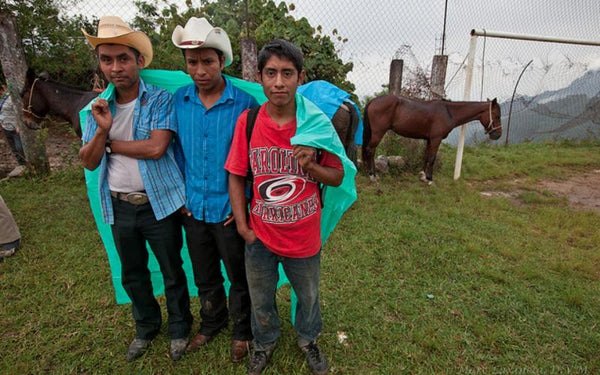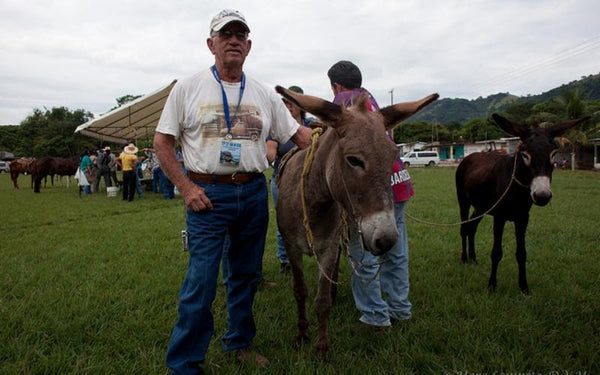Equitarian Initiative
FullBucket has teamed up with the Equitarian Initiative to distribute our nutritional supplement products, veterinary services and broaden the reach of both our programs. October 22 - 27 marks the dates for our next FullBucket, Equitarian Initiative in Santa Cruz, Mexico. The Equitarian Initiative is an AAEP derivative of concerned, motivated, philanthropic veterinarians who attended to develop skills in third-world country equine welfare and healthcare.
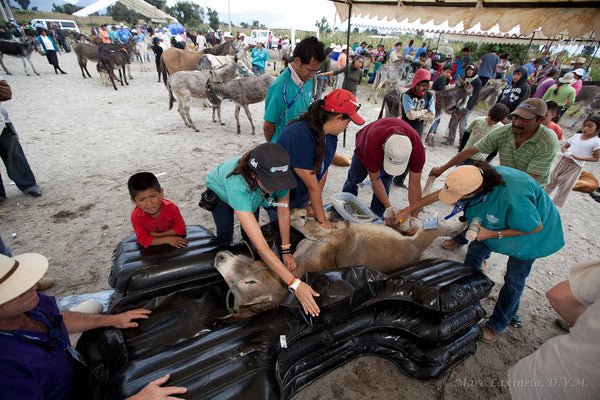
Several veterinarians, veterinary students and volunteers travel to Mexico to join forces with UNAM (the veterinary school in Mexico City), the Donkey Sanctuary (www.thedonkeysanctuary.org.uk ), World Horse Welfare (www.worldhorsewelfare.org), the Humane Society Veterinary Medical Association and the AMMVEE Foundation (Association of Mexican Medical Veterinarians Specializing in Equine) to work on donkeys, mules and horses in impoverished rural areas. Rob Franklin, DVM, DACVIM and Keith Latson, DVM, DACVS and Rob Hendrickson from FullBucket Animal Health along with scores of other helpers and volunteers will be making plans, gathering supplies and defining helping partners. Our Care + Care pledge is that for every FullBucket You Buy, We Give One To An Animal In Need - and this is where the rubber meets the road. To date we have over 30,000+ doses to provide to malnourished equids.
"During our first Equitarian experience, we wondered if there was a way to extend the benefit of dental work in horses that couldn't masticate, of deworming equids so burdened that they couldn't absorb nutrients presented to the gut, and of B-vitamin injections which may be quickly metabolized/excreted. We partnered with an equine nutritionist in Mexico who has taken many equine hair and feed samples in the areas where we work to determine specific nutritional deficiencies in the population. From the analyses, we work with in-country premix companies to develop a palatable nutritional supplement to address the specific nutritional needs. This is the product, our Care+Care product, that we distribute, not the commercially available digestive support supplements available on our website and through distributors in the United States." Says Keith Latson.

The group will fly to Mexico City and travel by van to a local town where we will create a hub for transportation and central information. Each climate represented different agricultural industries and social climates: tropical mountains where they grew coffee, bananas and corn; the high desert where corn and maize were grown and poverty ran rampant, subtropical highlands where donkeys were used to carry 100 liters of milk to the cheese factories twice a day and finally coastal lowlands that included many beeves. Donkeys are the mainstay for travel, hauling firewood, crops and other produce. The beasts daily carried more than their own weight in riders and gear. They serve as an indispensable resource to the people of Mexico. With slightly more affluence, owners had mules to plow and horses to gather cattle.

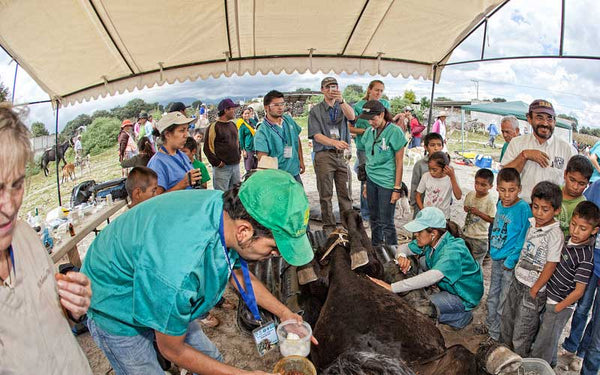
Each day Equitarians gather at a local soccer field and set up tents, or 'stations' for medical care. Villagers were always patiently waiting, tying their animals to soccer goals or any other sturdy object while the clinic was organized. Children invariably showed up to see what was going on. It is a joy to watch and interact with them. In spite of all they don't have, their smiles and laughter showed their true inner joy. Sometimes the 'have-nots' have more fun than 'haves.' Stations include:
- Dentistry
- Parasitology
- Nutrition
- Surgery
- Lameness
- Internal medicine
- Client education
- Children outreach
- Saddlery and
- Farriery
Animals are checked in, assessed for specific needs and then the owners are given directions to visit each station as needed. Malnutrition, parasitism, skin conditions, lameness, castrations, saddle sores, respiratory disease and dental abnormalities were the most common conditions seen. Veterinarians with varied skill sets treated the animals with limited medications and instrumentation.
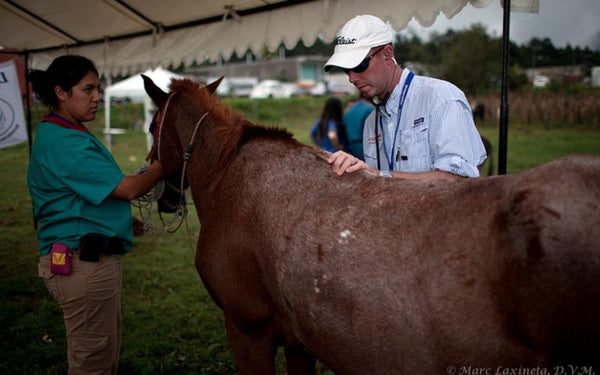
The trip is a huge personal awakening for all who have attended in the past. "You can read about problems all day long but until you have your boots on the ground and meet the people, see their needs and reliance on beasts of burden, you can't fully understand how blessed our lives are and how able we truly are to help not only the animals, but also improve people's quality of life." Rob Franklin, CoFounder of FullBucket. We continue to reflect on the event and are invigorated to continue such outreaches in as many ways as possible through FullBucket. The AAEP Equitarian Initiative goals are to expose, teach and harness veterinarians to support existing missions and develop their own. "I can't wait to see where we are led next. There are many needs in this world and we have an enormous amount we can give through our profession." Keith Latson, Cofounder FullBucket Animal Health. Contact us at info@fullbuckethealth.com for more information on how you may get involved.
